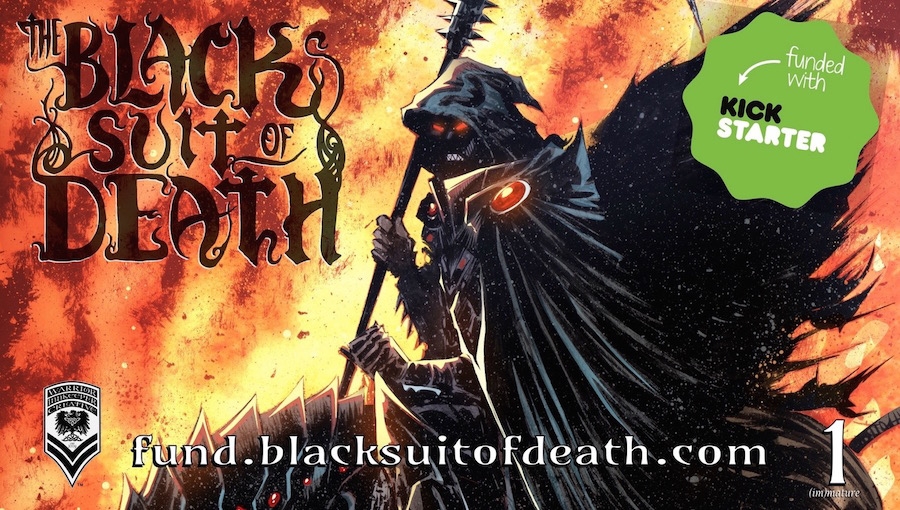What price is happiness?
The difference between depressed and Depression is pretty significant. It’s natural to get down every now and again. In fact, it’s a sign of good emotional health. Losing people or things in our lives will bum us out, but when it seems like nothing will get better, when every part of your life seems rallied against you, when happiness is a memory that feels shaded even though you go about your day normally, you honestly don’t see the little joys that fill the day, or the potential paths that lead to good times. You don’t go to the party, because everything is going to hell, even though there’s nothing that you can do about it right now. You isolate yourself from others, because you’ve noticed that your attitude bums them out and you feel that they’re better off without you around. That cycle continues until you feel that way about everything, and that’s the critical time when you need help. Benjamin Kreger and Ed Ellsworth seem familiar with this cycle, and it’s only through serendipitous intervention (of dramatic license) that keeps our protagonist from an early exit.
When I reviewed Ides of March, I had no idea that this series was to have such a deep emotional and narrative core. The preview was good and certainly engaging, but it was “mad scientist” kind of quirky fun. When I began reading the review copy, I honestly had wondered if I had been given the wrong file, because everything seemed so different from what had come before, but the story quickly drew me in and things began tying in towards the end of the book. I’m surprised at the storytelling range of these guys, beginning with what I called “Bruce Campbell in the best way” and shifting to a subject that takes not only dedication to bring out but oftentimes firsthand experience to recognize. Their ability to make such a turn makes sense, and to pull it off so well is a testament not only to the core of this story but to the commitment they have to these characters and this world. The most amazing part is that in the second issue preview, it seems that things shift back to that lighter tone; if they continue to move seamlessly between the morose and absurd, then this will be one of the greatest works of the medium to come about in years. All of the characters breathe with truth; the exaggerations are well placed for comic effect without undermining the lovely intensity and verisimilitude that has been created.
Dexter Wee and Bryan Arfel Magnnaye team up to bring to life one very pretty-looking book. The visuals are tight and the feel is equal to an HBO program in terms of modesty. It’s the kind of style that I love, something that feels like it grew out of the slightly-too-bright cartoons of the ’90s and matured into an easy-going and enriching style – one that allows the story to take the forefront and support it without getting in the way with stylistic prestidigitation. The character models are all very thin and pretty – somewhat unfortunate in terms of body image – but there’s no denying that every character begs to be seen, and keeping track of everyone is quite easy.
So far, this has been one of the most surprising and interesting books I’ve read this year, and the team is Kickstarting issue two right now. They’ve reached their goal as of this morning, but the campaign runs through Wednesday, so if you want to get on the second issue, jump over and toss them some love.
As a sidenote, if you or someone you know is suffering from depression, click here. The message there is great; they have a lot of resources available, and I’ve found a lot of inspiration there.
Share the stories that move you.

